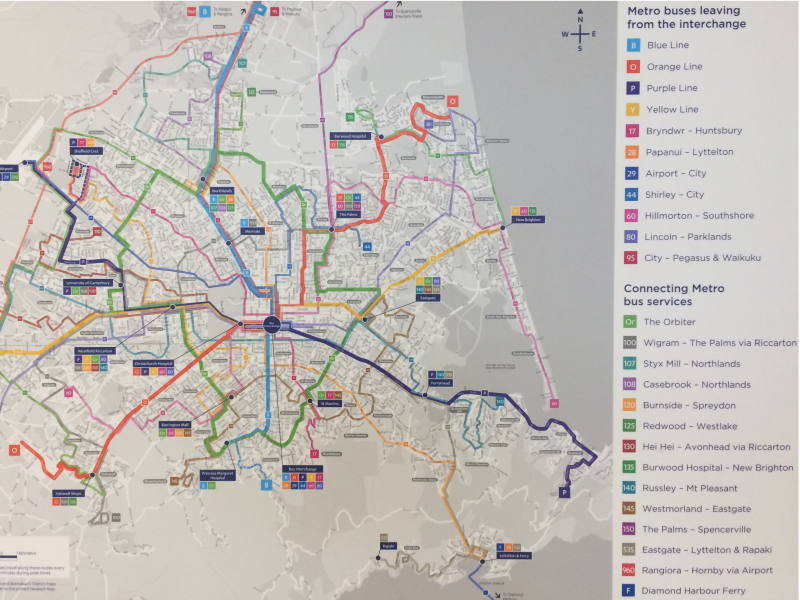However Ecan’s Senior Manager for public transport, Stewart Gibbon says the issue of walking such distances to get a bus isn’t a big issue. However he understands the system isn’t good enough at the moment.
Ecan run the bus system alongside the council. Gibbon says reliability is something which entices people to use public transport and that our buses need to improve on that aspect. He links a lot of this to poor roads that were damaged by the earthquake, especially in the City Centre.
“We know at the moment that the reliability of our network is not as good as it could be, and one of the key issues about that is all the roadworks going on in the city.”
Phil Clearwater thinks of the bus system and usage as a snowball effect.
“Once there’s an understanding in the city that buses are taking too long then fewer people are likely to get on them.”
Stewart Gibbon mentioned that the average waiting time for a bus is around 15 minutes on the main routes. He says if Ecan were to focus on this and shorten the amount of time a passenger is waiting for a bus, reliability would be less of an issue.
“If we were able to improve frequency to ten minutes for example then as a customer you are less reliant on looking at the time table because you know in ten minutes a bus is going to be coming past.”
Although this would decrease waiting time, buses still have to wade through traffic at peak hours, just like a car. Transport planner Glen Koorey says there should be better bus lanes and corridors for them to travel on. He thinks the bus system would be a lot better if it mimicked what was going on in other cities around New Zealand.
”If you’ve ever been to Auckland and looked at the Northern bus way, that’s a fantastic facility on the North Shore that whizzes past the stationary traffic on the motorways,” he says.
Koorey adds that Christchurch needs to look at different options to improve the bus system, or else passenger numbers will continue to decline.


